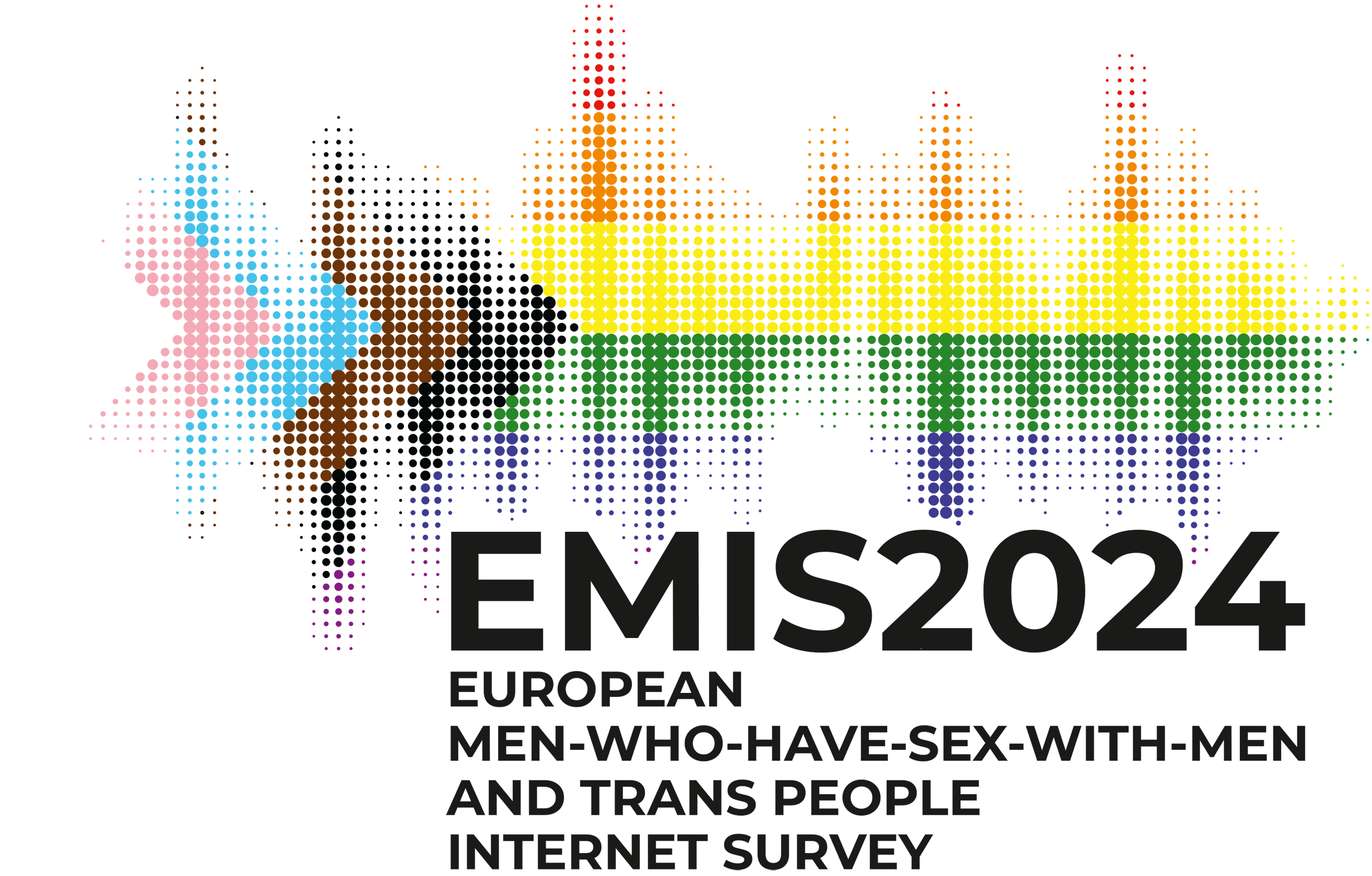
Latest news
11.03.2024
Some more examples from the different national campaigns. EMIS-2024 is a mammoth venture, so it doesn’t move fast. But when it moves, it rolls!
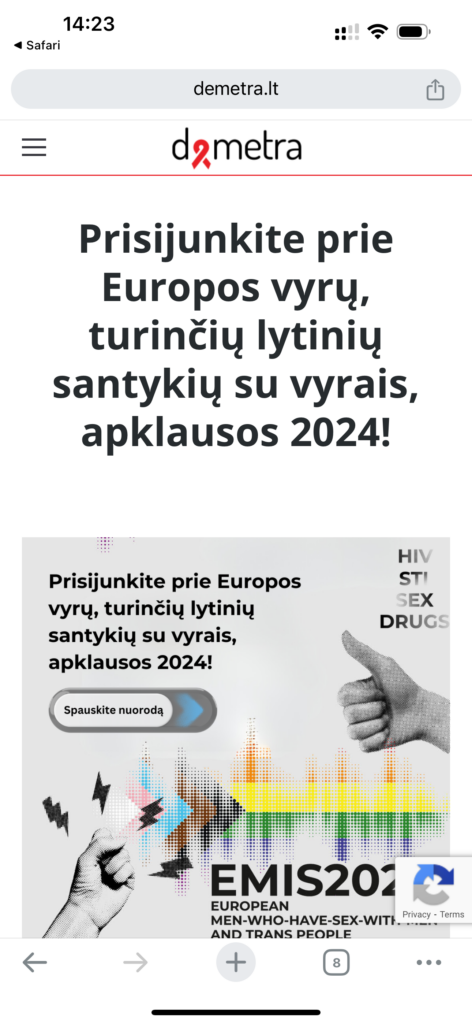
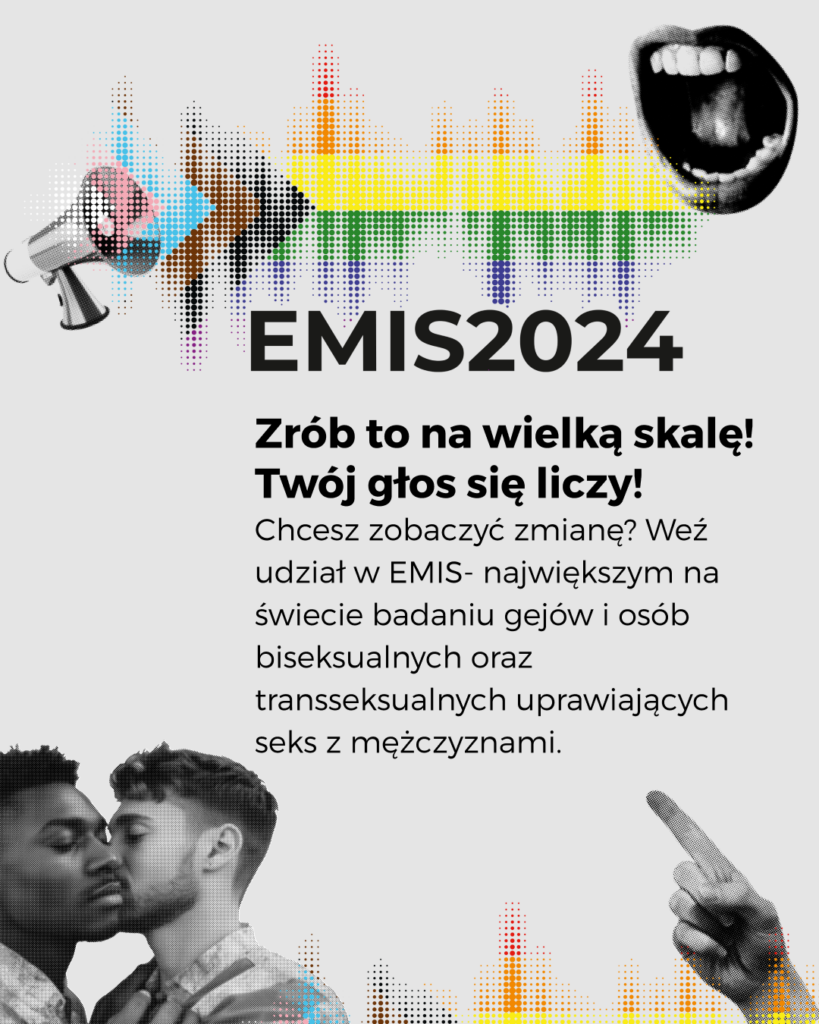
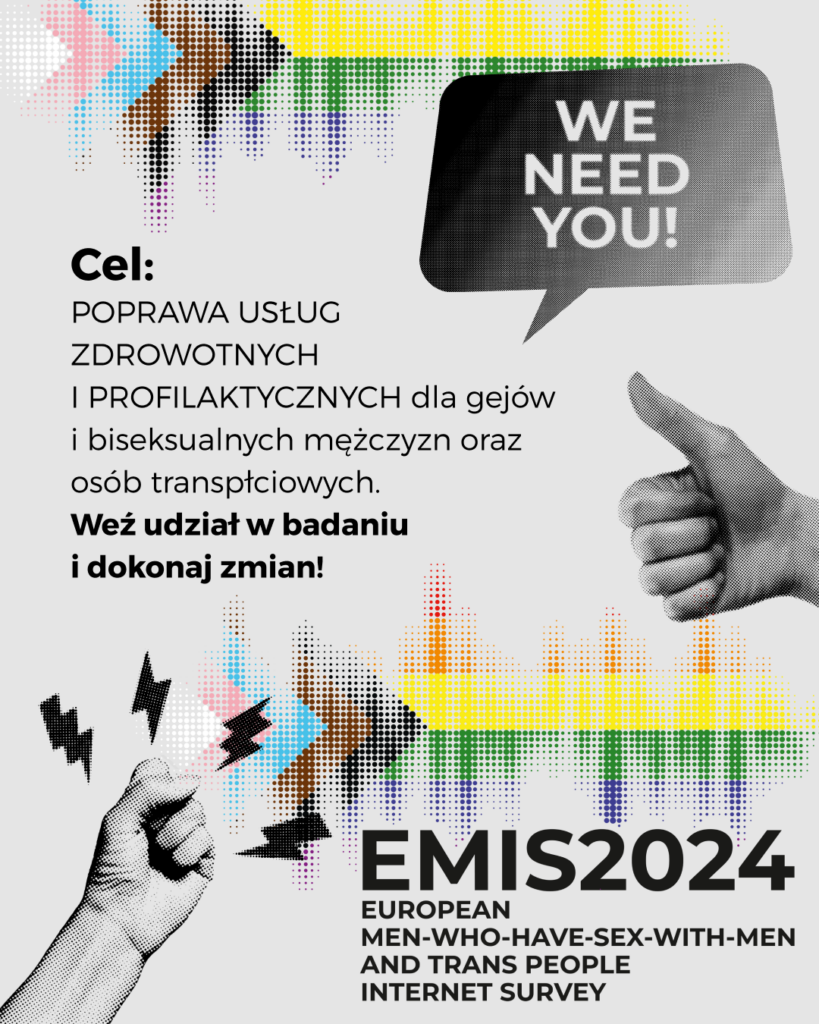
29.02.2024
EMIS-2024 is rolling out slowly but steadily. Here are a few examples from our community partners’ social media feeds.
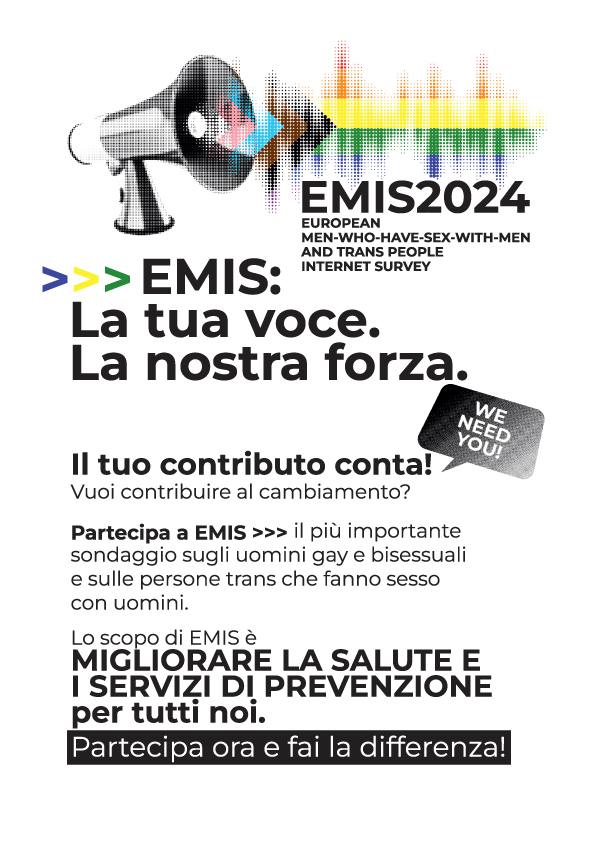
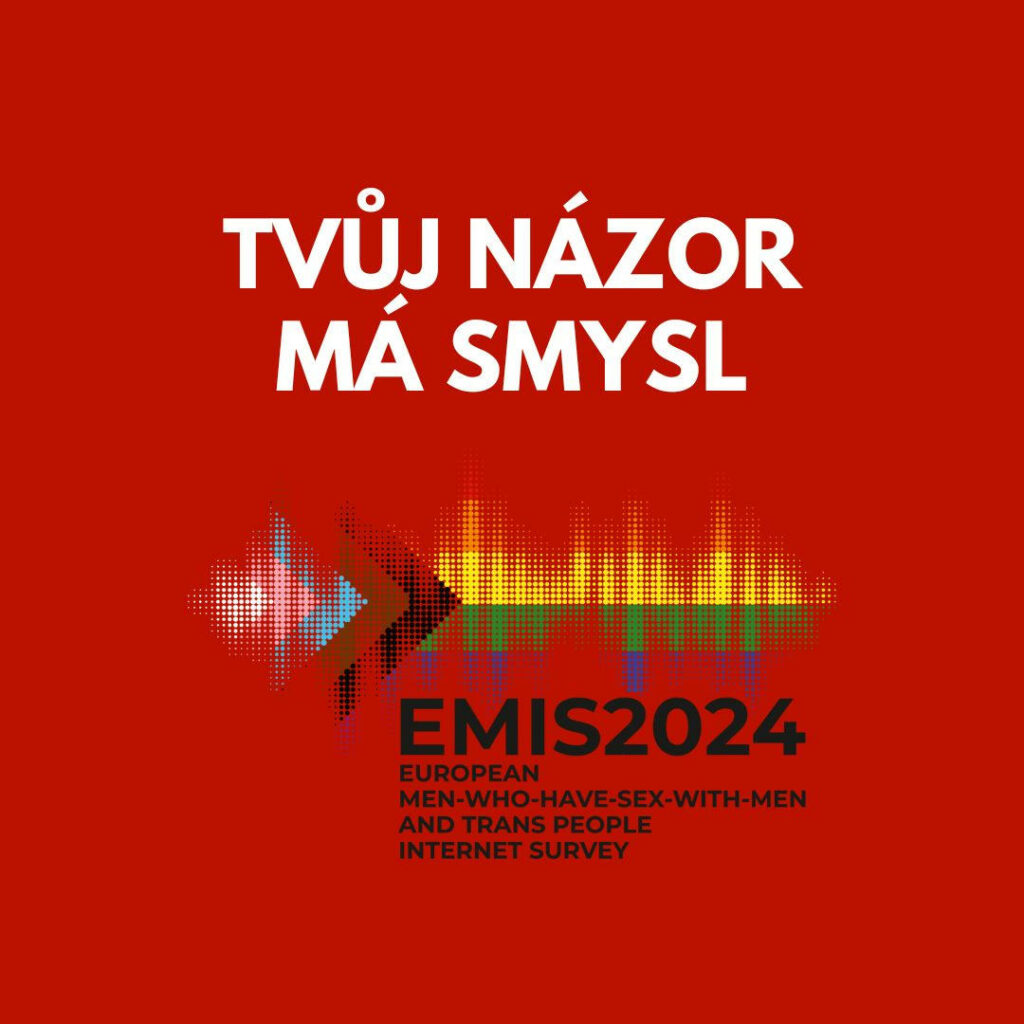
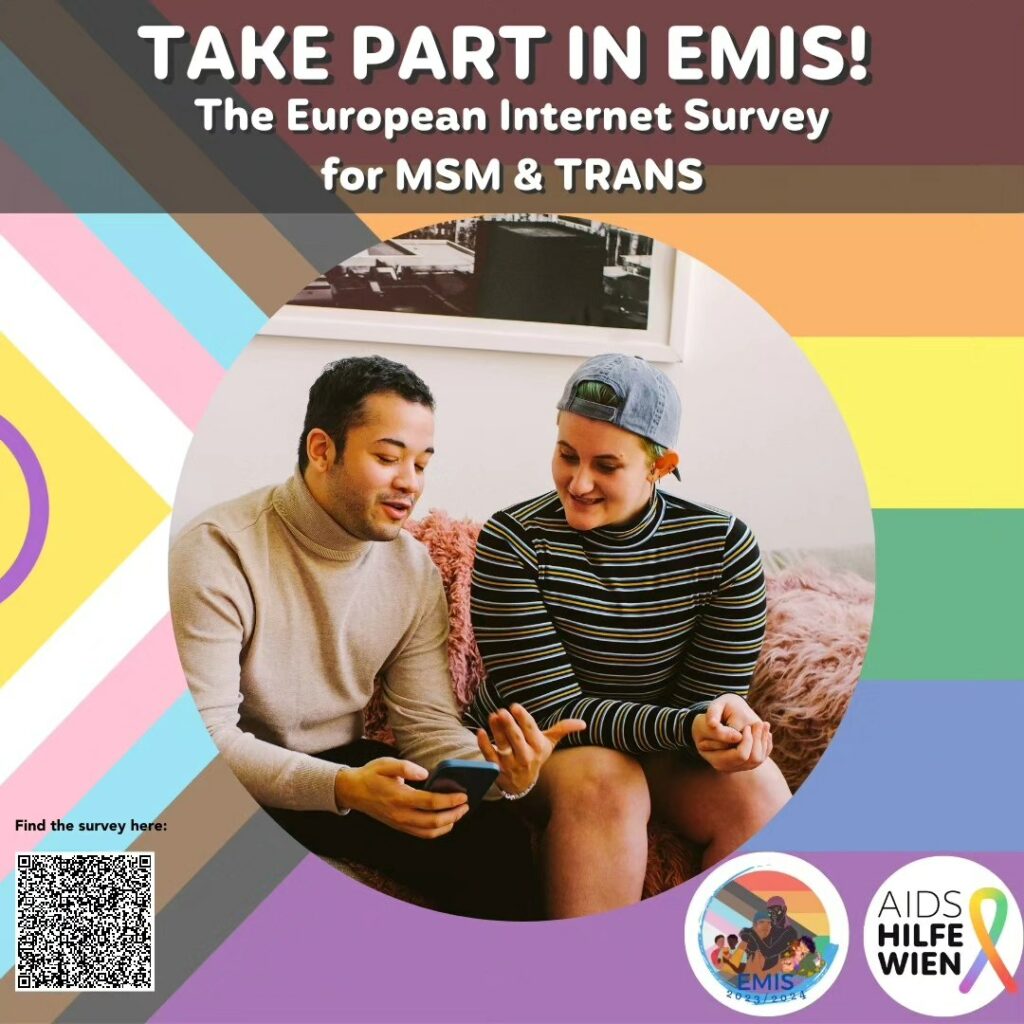
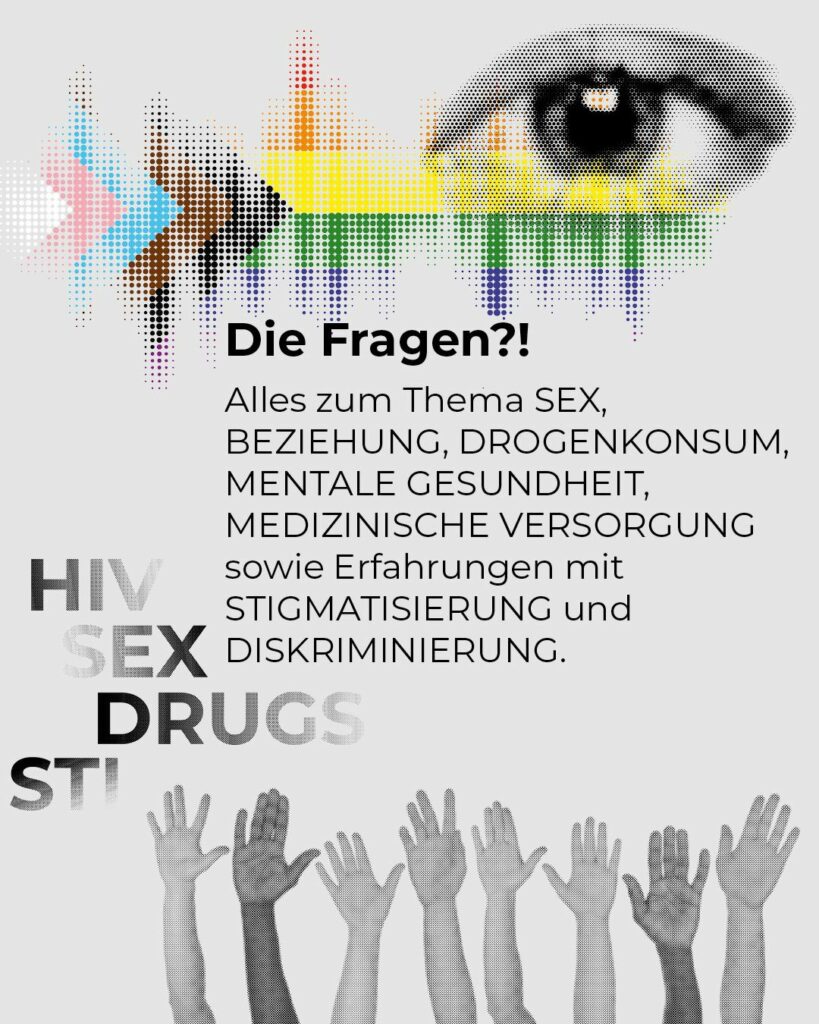
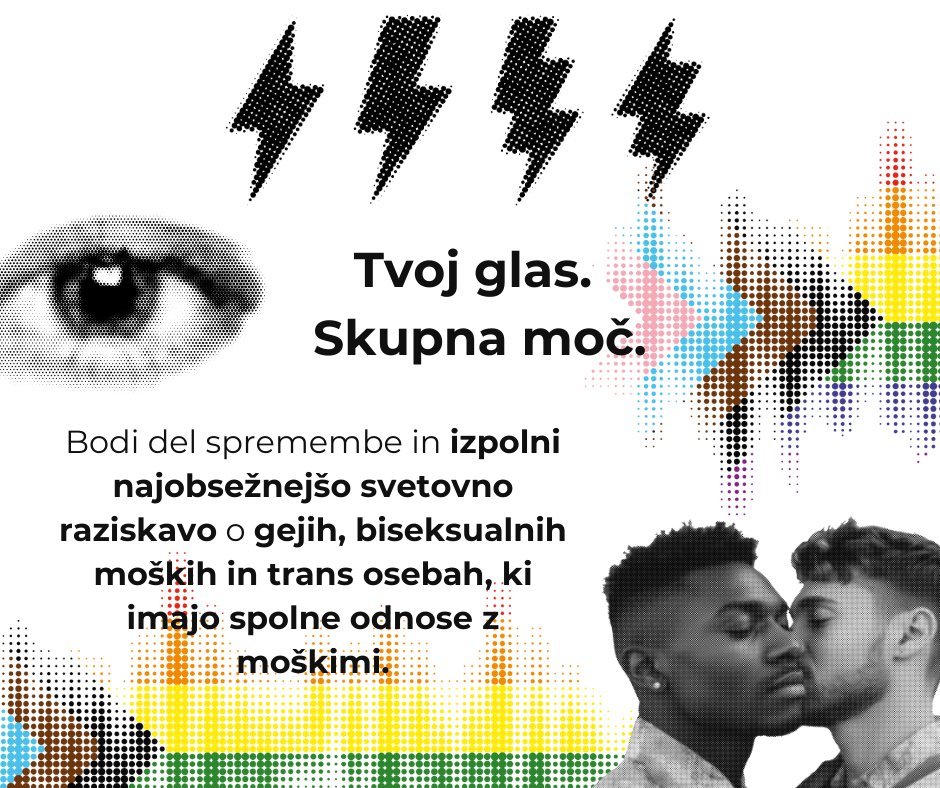
26.02.2024
“So what is taking so long” – you ask, and you are quite right. Putting EMIS-2024 together was already a daunting task with near 50 different partners, 35 languages and 50 countries, and a complex funding structure that relies on contributions from an impressive consortium. However, rolling out EMIS-2024 to all the affected communities is even more challenging, and it does take time. We are trying to make sure that everyone in the groups concerned can have the chance to reply to the survey. This is why we will keep EMIS-2024 open at least until the end of April 2024.
25.02.2024
19.02.2024
Most partner organisations across Europe have received their links to EMIS, and recruitment can start for real.
There is, however, a recurrent question regarding the survey: Can the participants go back in the survey if they want to correct a previous answer? This is not possible, unfortunately. The option of going back would involve collecting cookies from participants, which we cannot do for privacy reasons. The survey must remain completely anonymous, and so no identifiable cookies are allowed as these would be associated with the participant’s IP address.
Past updates
Project
We are delighted to confirm EMIS-2024.
The European MSM Internet Survey (EMIS) is a multi-country, multi-language, anonymous online survey for gay, bisexual, and other men who have sex with men (MSM).
EMIS is a joint project of community, academic, and governmental partners across Europe, to inform sexual health interventions for MSM. It occurred in 2010 and 2017 with core-funding from the European Union Health Programme. Since October 2023, we have managed to establish sufficient funding for repeating EMIS, with data collection planned for early 2024.
EMIS-2024 is executed by a consortium of three partners: Deutsche Aidshilfe (DAH), Maastricht University, and Robert Koch Institute (RKI). Team DAH: Dr. Axel J. Schmidt (co-principal investigator), Dr. Tamás Bereczky (coordinator EEA/CH/IL), with the support of Dr. Dirk Sander, Jonathan Gregory, Ferenc Bagyinszky, Alexandra Gurinova, Silke Klumb. Team Maastricht: Prof. Dr. Kai J. Jonas (co-principal investigator), Liana Aphami (data coordinator), Jules L. Casalini (trans sub-survey). Team RKI: Dr. Ulrich Marcus (co-principal investigator), Dr. Nikolay Lunchenkov (coordinator EECA/DE).
EMIS-2024 is co-funded by the European Centre for Disease Prevention and Control (ECDC) and the following countries: BE, CH, DE, EE, ES, IE, IL, LU, NL, NO, PT, and SE. For details see EMIS-2024 Network. One of the key benefits of EMIS has been the possibility of completing the questionnaire in all of the official languages of the European Economic Area (EEA). This is particularly important for countries with large proportions of migrants from Southern, Eastern, or South-eastern Europe.
We aim at covering 50 countries and 35 languages.
Countries receiving national funding are shown in dark blue colour, countries with a light blue tone are either included without funding (as national languages are already covered), or they are co-funded by ECDC. The coordinator for all blue-shaded countries is Tamás Bereczky (EEA/CH/IL).
Countries receiving funding from Germany (German Ministry of Health, or Germany’s Global Health Protection Programme) are shown in dark green colour. The coordinator for all dark-green-shaded countries is Nikolay Lunchenkov (EECA/DE). Countries with a light-green shading have a complex funding structure and are jointly coordinated.
Countries in dark grey were either included in previous EMIS research waves or had initially planned to be included in EMIS-2024 but now are not participating.

